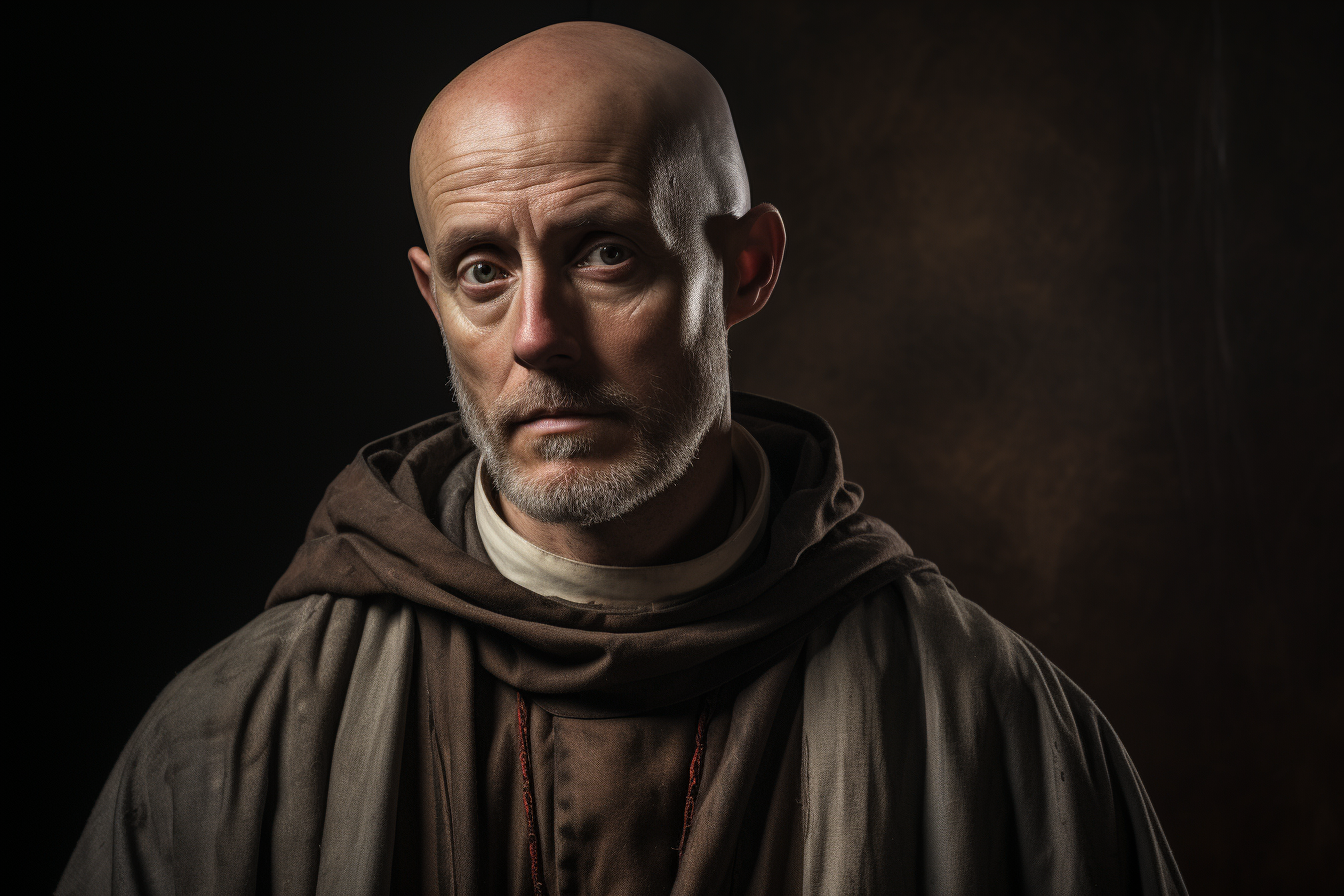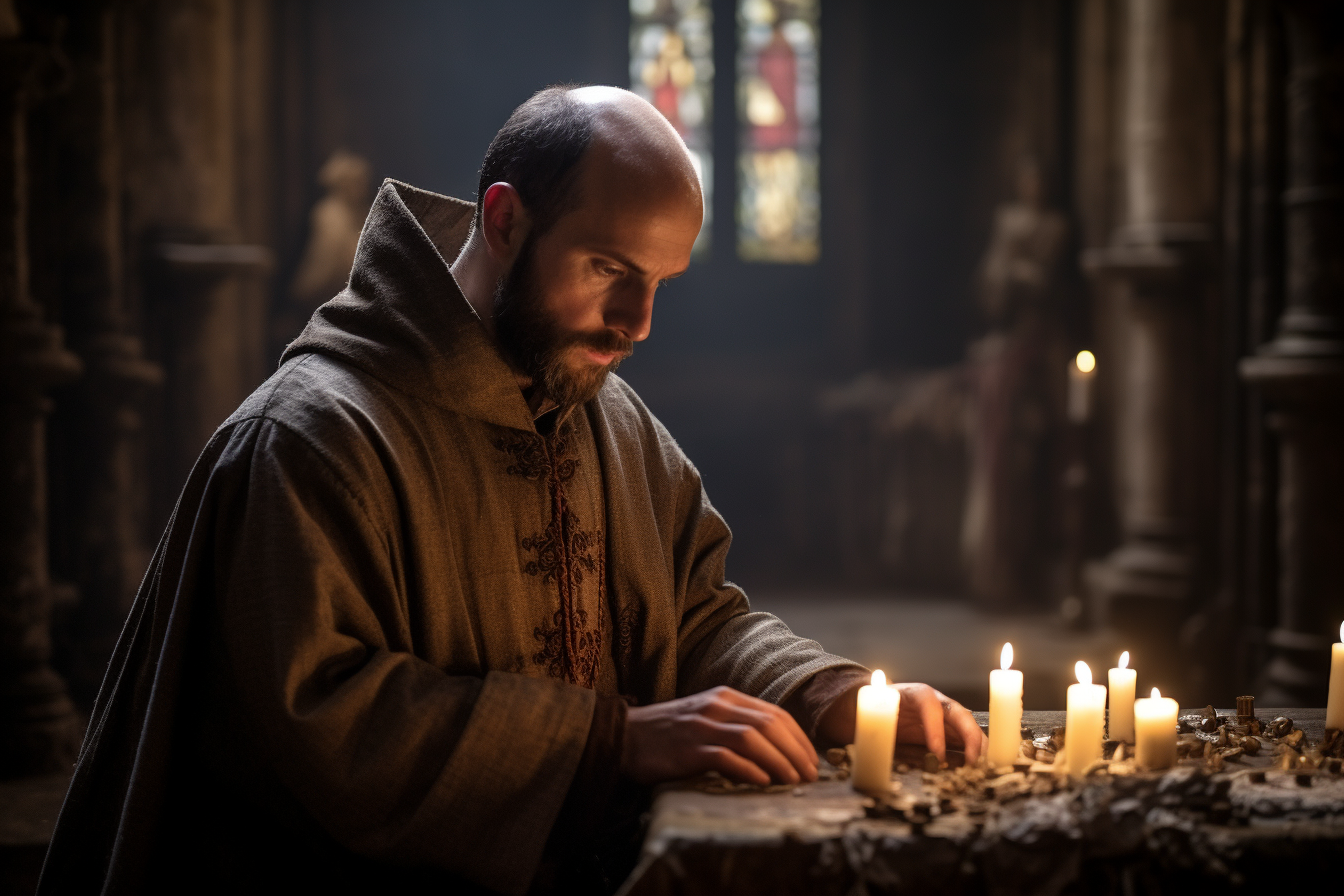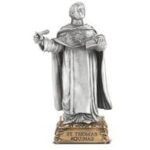
St. William of Bourges
St. William of Bourges
When they lived:
Saint William of Bourges was born in 1155 and lived through the 12th century, passing away in 1209.
Where they lived:
Saint William was primarily associated with the town of Nevers in France. He was known for his dedication to the Church and his efforts to promote spiritual growth in the region.
Notable world events during the time of their life:
- Third Crusade (1189-1192): One of the most significant events during St. William’s lifetime was the Third Crusade. Led by prominent figures like Richard the Lionheart and Saladin, this crusade aimed to recapture the Holy Land from Muslim control. While St. William wasn’t directly involved, this event had a profound impact on the Christian world and the region.
- Medieval Renaissance: The 12th century witnessed the revival of learning and culture in Europe, often referred to as the “12th-century Renaissance.” This intellectual awakening laid the foundation for later developments in science, philosophy, and theology. St. William’s life coincided with this period of renewed interest in knowledge.
- Birth of Gothic Architecture: During St. William’s time, Gothic architecture began to flourish. The construction of iconic cathedrals like Chartres Cathedral and Notre-Dame de Paris represented remarkable achievements in engineering and design, emphasizing the spiritual importance of the era.
- Al-Idrisi’s Geography: In the realm of science and exploration, the Muslim geographer Al-Idrisi created his famous world map in the 12th century, showcasing a comprehensive understanding of the world’s geography. This work contributed to further exploration and the exchange of knowledge between East and West.
- Birth of the University: The University of Bologna, founded in 1088, became a model for higher education during St. William’s time. The rise of universities marked a shift toward organized education and the systematic pursuit of knowledge.
Their patronage:
Saint William of Bourges is the patron saint of pregnant women, midwives, and people in difficult labor. His devotion to aiding women during childbirth and his deep compassion for those in pain earned him this special patronage. It’s a testament to his unwavering commitment to helping others and his enduring legacy in the realm of compassion and care.
St. William’s life was intricately woven into the tapestry of the 12th century, a period marked by both religious fervor and intellectual enlightenment. His story is not only one of spiritual devotion but also a reminder of the dynamic and transformative era in which he lived, where faith and knowledge intertwined to shape the course of history.
Early Life
St. William (also known as Guillaume de Donjeon) was born around 1140 in Nevers, France.
His father initially intended for Guillaume to join the army. However, Guillaume took the ecclesiastical way of life instead. His ecclesial tutoring was handled by his uncle, the Soissons archdeacon Pierre (Peter the hermit). William eventually abandoned worldly pursuits and joined the Order of Grandmont.
He stayed with the order for some time and followed their practices with immense dedication. When he discovered that the members were no longer cordial with each other, he left and joined the Cistercians. At the Pontigny Abbey in France, he donned the habit and was soon made Prior. He was appointed Abbot of Fontaine-Jean Abbey in 1184. Also in 1200, he was made abbot of Chaalis Abbey.
Saint William nurtured a genuine and true dedication to the Blessed Sacrament. For this reason, he was often at the altar, meditating on the true meaning of the Sacrament.

Call to Dedication and Devotion
In 1200, William was appointed Archbishop of Bourges. He was reluctant to accept this new appointment because it meant abandoning his solitary life of meditation and prayer. Pope Innocent III, as well as other religious superiors, encouraged him to take the position. William agreed but continued his asceticism practices throughout the rest of his life. He always wore a shirt made from hair beneath his bishop’s habit and completely gave up meat.
Legacy
Bishop William oversaw the ongoing building of the Gothic Cathedral of Saint Stephen that had been started by his predecessor in 1195. He paid visits to the poor and sick regularly. He did not forget the imprisoned as well. He also stood up for the rights of the clerics against government intrusion.
Death and Canonization
Saint William of Bourges died in 1209 at midnight while meditating at the foot of the altar. He died at the age of 59.
Before his death, he had been making plans to visit the Albigensians as part of his missionary work. In his will, he asked that his body be buried in ashes while wearing his hair shirt. His remains are currently interred in the Basilica reliquary chapel.
Pope Honorius III declared the canonization of Saint William on May 17, 1218.
The feast of Saint William is celebrated on the 10th of January.
Saint William is the patron saint of Gunsmiths.
Miracles
Some people claim that Saint William carried out eighteen miracles while he was alive and another eighteen after he died.
5 Interesting Facts About St. William of Bourges
- Did you know Saint William is the patron saint of the University of Paris?
- Saint William once issued an interdict against Innocent III for divorcing his wife. This action made King Philip II very angry at him.
- Did you know Saint William was born into an old family of illustrious counts? This makes his devotion to Piety all the more remarkable.
- Saint William was one of the most sought-after confessors in France.
- Did you know Saint William never wore any extra clothes during the winter or lesser clothes during the summer? His dedication to a life of austerity was truly absolute.
Prayer to St. William of Bourges
St. William, we ask that you watch over us and pray that we may combat pride and remain aware that all we have and all we are are from God. Pray for us, dear St. William, that we serve Him in love and humility, praising Him always for His mercy and kindness. Amen.
Source: [https://catholicexchange.com/st-william-of-bourges] {.ul}



